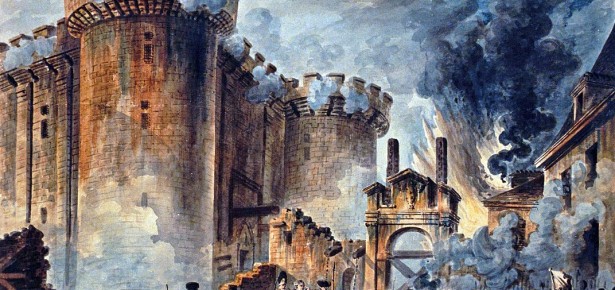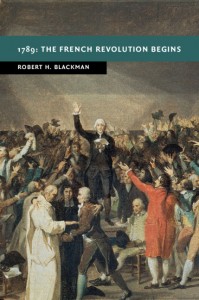
No past event gives us a perfect guide to understand current affairs. Nevertheless, we could do worse than use our shared past to help us think through the remarkable political changes Britain has experienced since the 2016 referendum on leaving the European Union. One event in particular shares much of the political drama Britain has recently seen: the early French Revolution, 1787-1789.
In 1789: The French Revolution Begins, I discuss how sovereignty moved from the traditional monarchy in France to an elected National Assembly, an assembly that claimed the right to craft a new constitution for the nation. The way in which the French monarchy collapsed is useful to help us understand what might happen in Britain now, as its ancient constitution comes under increasing strain. The period 1787-89 in France provides an object lesson in the law of unintended consequences to friends and foes of Brexit alike.
Faced with a pressing need to reform state finances, Louis XVI summoned an Assembly of Notables in 1787 to discuss far ranging changes. He took this unusual step to create the appearance of public consent to the reforms and avoid getting them hung up in France’s great law courts, the Parlements. The Notables refused to approve the changes. The Crown then tried to push its reforms through the Parlements after all. In the ensuing media war, the king’s ministers and their opponents in the law courts discredited each other. A full-blown political crisis erupted in mid-1788, as the state teetered on the edge of bankruptcy and open rebellion broke out in major provincial cities. In the growing chaos, the Crown agreed to call a long-defunct representative body, the Estates General. It was the only body left with any claim to represent public opinion.
The parallels between 1787-89 in France and the last few years in Britain are clear. In both cases, the traditional political class failed to master a complex problem, in France royal finance, in Britain its membership in the European Union. The key problem in both, it seems to me, is a lack of trust among the interested parties. Given the possible bad outcomes (in France constitutional collapse, in Britain a disorderly crashing out of the E.U.) one would expect reasonable women and men to come together and hammer out compromises. In both cases, though, bad leadership poisoned relations within and between traditional political groups (as Labor and the Conservatives are internally split, and the Clergy and Nobles in France were as well). The executive power in both cases scored almost endless own-goals. Politicians’ inability to resolve a crisis led to the emergence of new political actors who have or had little interest in preserving existing constitutional norms (the Brexit Party in Britain and the Patriots in France.) Without much warning, apparently solid political edifices cracked.
In terms of Brexit, I would say that we’re currently still in a pre-revolutionary stage like that of France in 1787-88, when political norms were being challenged and overthrown without any clear sense of what direction matters would take. It seems unbelievable that Parliament will stumble so badly that ordinary Britons no longer see it as a credible and legitimate governing body. Remember, though, that no one in the France of 1788 thought that Louis XVI would summon an Estates General and then refuse to follow its lead, precipitating a revolutionary transfer of sovereignty from the royal body to the nation as represented by its elected deputies.
 1789: The French Revolution Begins tells the story of how deputies elected to the Estates General of 1789 overcame the resistance of a truculent conservative minority and the king himself to claim the power to reconstruct the French constitution and French society. It will be of interest to anyone who wishes to see what happens when a monarchy implodes under poor leadership. On sale now.
1789: The French Revolution Begins tells the story of how deputies elected to the Estates General of 1789 overcame the resistance of a truculent conservative minority and the king himself to claim the power to reconstruct the French constitution and French society. It will be of interest to anyone who wishes to see what happens when a monarchy implodes under poor leadership. On sale now.
Latest Comments
Have your say!